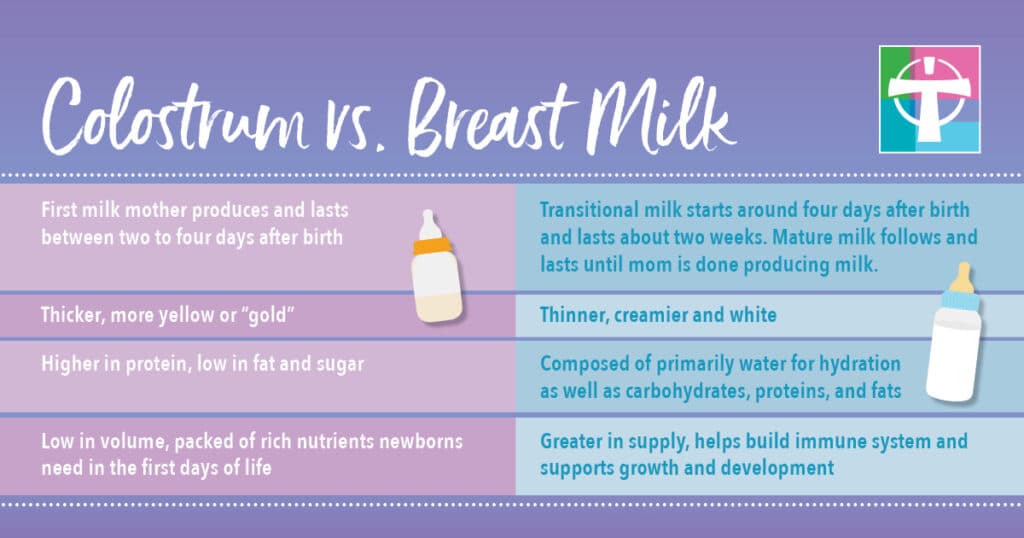Breastfeeding is natural, but it can be challenging, especially in the beginning. Being prepared can make all the difference.
Gregory J. Gelpi, MD, FAAP, IBCLC, Our Lady of the Lake Children’s Health pediatrician and breastfeeding expert, and Becca Miller, SLP, speech language pathologist and official lactation consultant at Our Lady of the Lake Children’s Hospital, help us understand what parents should know about breastfeeding in this ParentingU podcast episode.
Why Breastfeeding is Important
Breastmilk is alive with organisms, antibodies, nutrients and protein, and when babies receive breastmilk, their immunity is boosted. It’s almost like the mom’s immune system is teaching the baby’s immune system through the breastmilk.
Breastfeeding decreases infections and keeps babies from getting as sick when they do pick up viruses. As the best probiotic, breastmilk has huge benefits for babies’ gastrointestinal tracts.
Breastfeeding has payoff for children’s health later in life. Breastfed babies also are less likely to develop asthma or diabetes, and in general are healthier. ParentingU supports all methods of feeding babies—a fed baby is a healthy baby—and we believe breastfeeding is the foundation of children’s nutrition and emotional development.
Special Bonding
Breastfeeding bonds moms and their babies, and it’s 100% reliant on mom’s hormones. To produce milk, mom need those hormones of prolactin and oxytocin. Skin-to-skin contact and nuzzling builds that psychological bond that allows mom to produce milk.
There’s no one right way to breastfeed a baby, and there are several positions that mom can use to feed. A lactation consultant can help moms determine what positions work best for them and their babies.
Breastfeeding Journey and Milestones
Important to learn about breastfeeding before baby is born. Prenatal education is key to success.
In the first 72 hours of baby’s life, establishing a good suck, swallow, breathe will help mom’s milk come in. Those first three days aren’t about volume, as moms first produce colostrum and then the milk starts to let down. The volume of colostrum is small, which is normal since the baby’s stomach is so small at birth.

It’s not easy, but once you get it, you got it. If moms give it the two weeks, and they have good follow up they can get it. Giving baby formula during those first weeks can really crash and burn mom’s chances of achieving full milk production.
Once mom’s milk comes in, feeding will take about 20 minutes per breast. But don’t watch the clock. Once baby becomes efficient in draining the breast each nursing session will get shorter.
Breastfeeding can be difficult, but it’s something all moms can do. It’s a process, and challenges are normal. We offer lots of support both in the hospital and after mom and baby go home.
Support for Breastfeeding Moms
Nutrition is so important for nursing moms. When a breastfeeding mom or their child is in one of our system’s hospitals, we provide meal vouchers and access to breast pumps as needed while they’re admitted. Lactation consultants are available to meet with parents, listening and providing the education and tips needed to be successful.
There are outpatient resources available too, including lactation lines. Lactation consultants are a phone call away—whenever you need help, all you have to do is ask. Breastfeeding shouldn’t hurt, and lactation consultants can help resolve any discomfort and establish correct techniques.
Don’t be afraid to ask for more support, advocating for yourself when you need help with breastfeeding, whether in the hospital or at home.
It Takes a Team
A partner’s support can play a huge role in a mother’s breastfeeding journey. Some ways partners can help mom include:
- Learning about breastfeeding and its benefits
- Providing a helping hand while mom is learning to breastfeed
- Bring baby to her for feedings
- Help wash bottles and pump parts
- Make sure mom has enough to eat and drink
- Encourage mom when she feels discouraged and advocate for her if anything feels wrong
- Celebrating breastfeeding goals met
- Let mom rest as much as possible!
Possible Problems to Watch For
Breasts that are hard or hot to the touch or white pimples on the areola are things that scream “Hey, I need some assistance.” A lactation consultant can provide that help.
At home, moms can add heat, more hand massaging or pump more frequently. Moms need to breastfeed or pump at least every 2-3 hours in the first weeks of baby’s life, even through the night.
If you’re giving from an empty cup, it’s not going to flow as well as if you’re giving from a full cup. That includes sleep, drinking enough water and good nutrition. Moms should drink 16 cups of water per day, which can include eating watery fruits, and eat an extra 330-400 calories per day.




